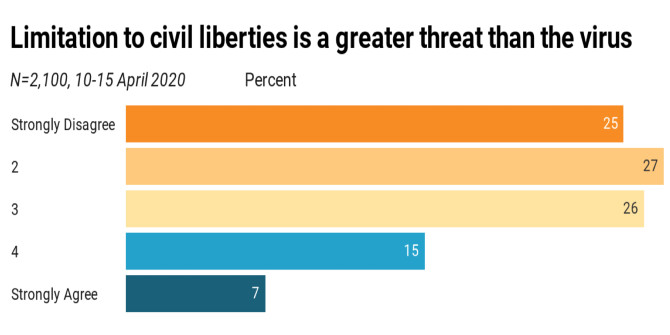 Researchers tend to rely on multiple choice tests to measure people’s political knowledge. Anna Killick explains why more open-ended interview methods could provide new insights, since people will have the chance to explain what they believe they know in their own words.
Researchers tend to rely on multiple choice tests to measure people’s political knowledge. Anna Killick explains why more open-ended interview methods could provide new insights, since people will have the chance to explain what they believe they know in their own words.
Since Philip Converse used survey techniques in the 1970s to demonstrate that the level of Americans’ political knowledge was ‘astonishingly low’, political scientists have conducted thousands of multiple choice style tests to measure people’s political knowledge. Over the decades, despite improvements to education, the vast majority of these tests show the percentage of people answering the questions correctly has stayed stubbornly low. Lack of public knowledge has therefore become an assumption that underpins a lot of political scientists’ work.
As well as the consensus that the overall level of public knowledge is low, political scientists and economists have also produced consistent findings about which social groups know least. Over the decades, women, those with fewer years in education, and those on low incomes score the lowest marks. But is it really the case that men, those with more years in education, and those on high incomes actually know more?
The finding that men know more than women has been challenged by political scientists. In contrast, there is remarkably little questioning of the survey findings that people on lower incomes and with fewer years in education know less. This uncritical stance is worrying when the key cleavage in political behaviour is perceived to be income or social class, but it becomes even more worrying when years in education is a dominant feature, as it is in analyses of the EU referendum. In many people’s minds, including in political scientists’, ‘years in education’ may be synonymous, or at least strongly linked with, ‘knowledge’.
But I argue we should not rely exclusively on factual tests as indicators of something as rich, varied, and contestable as knowledge – their results show who can answer the questions correctly but not why those who get them wrong do so, or what other knowledge they might have that the questions do not tap. It is therefore important that we explore whether our current reliance on such tests gives us the whole picture on public political and economic understanding.
 One example of a study which highlights how limited some surveys are is the British Election Study article on the link between financial literacy and attitudes towards immigration, an issue that is seen as a key driver of the Leave vote in the EU referendum. George Panos and Robert Wright want to measure financial literacy which they define, uncontroversially and inclusively, as ‘the ability to use knowledge and skills to effectively manage financial resources at a personal level’. The authors argue that financial knowledge is a form of human capital that will enable people to also understand economic issues. They say the impact of immigration – a key economic issue – requires a considerable understanding of economics. So, those who understand finance will accept more readily the economists’ consensus that immigration promotes growth and does not depress wages, rather than relying on the more simple notion that a never-ending supply of labour will depress wages and lead to unemployment.
One example of a study which highlights how limited some surveys are is the British Election Study article on the link between financial literacy and attitudes towards immigration, an issue that is seen as a key driver of the Leave vote in the EU referendum. George Panos and Robert Wright want to measure financial literacy which they define, uncontroversially and inclusively, as ‘the ability to use knowledge and skills to effectively manage financial resources at a personal level’. The authors argue that financial knowledge is a form of human capital that will enable people to also understand economic issues. They say the impact of immigration – a key economic issue – requires a considerable understanding of economics. So, those who understand finance will accept more readily the economists’ consensus that immigration promotes growth and does not depress wages, rather than relying on the more simple notion that a never-ending supply of labour will depress wages and lead to unemployment.
The authors then show from their empirical research that those who answer their finance questions correctly tend to support immigration, and conclude that financial literacy is an important factor in explaining positive attitudes to immigration. The resulting headline – that lack of financial literacy leads to negative attitudes to immigration – subsequently feeds the narrative that the Leave vote, in this case, reflects a lack of knowledge that can be objectively determined. But the three finance questions asked in that particular study to test the hypothesis, based on American practice, are about shares and compound interest rates. Therefore the questions give us a measure of the kind of financial literacy that higher income groups with experience of shares and interest rates are more likely to have than lower income groups.
My research on understanding of the economy, to be published soon, explores what people know through more open-ended interview methods. It finds people who do not have mortgages, savings or investments, yet still know how ‘to effectively manage financial resources at a personal level’, such as living off the state pension without getting into debt. Will questions on the minimum wage or pay-day loan style interest ever be asked in tests of financial literacy?
In addition, people’s reasons for resisting economists’ arguments on migration may amount to more than a failure to understand complex issues. Not all economists agree on the impact of migration on specific occupational sectors or local areas – research by The Bank of England indicates a possible negative effect on some semi and unskilled wage rates. Some participants in my research distrust national indicators, believing they do not fit with the local or sectoral conditions they know well; they do not believe economic experts ‘see things from the grassroots’. A high proportion of participants, including from educated and higher income backgrounds, express distrust of the unemployment statistics, for instance, which they believe have been massaged for a long time.
It is possible that those wealthier and more educated who do not have a strong interest in politics may not be paying any more attention to a wide range of economic activity than the less educated. In many ways, what may characterise many people’s approach to economic knowledge is self-interest, connected with their respective social conditions. As one participant in my research said, ‘I know my economy’.
The surveys are useful, but so far we have not conducted enough empirical research asking people to express what they believe they know in their own words and terms, that could supplement or shed light on their findings. Open ended, bottom up research would teach us more about the levels, dimensions, and variations of knowledge, for those with many years in education as well as those without.
Citizens may have a deep understanding of how the economy has impacted and continues to impact on their lives. It is possible that, rather than relying on the few facts political scientists consider important for tapping the domain of knowledge, we may learn from what people know about politics and economics at ground level.
________
 Anna Killick is a PhD researcher at the University of Southampton. Her research explores public understanding of the economy.
Anna Killick is a PhD researcher at the University of Southampton. Her research explores public understanding of the economy.








At last – an approach that interrogates the assumptions of the analysts rather than the presumed stupidity of the population. It will be interesting to see if, and how, this can be developed.